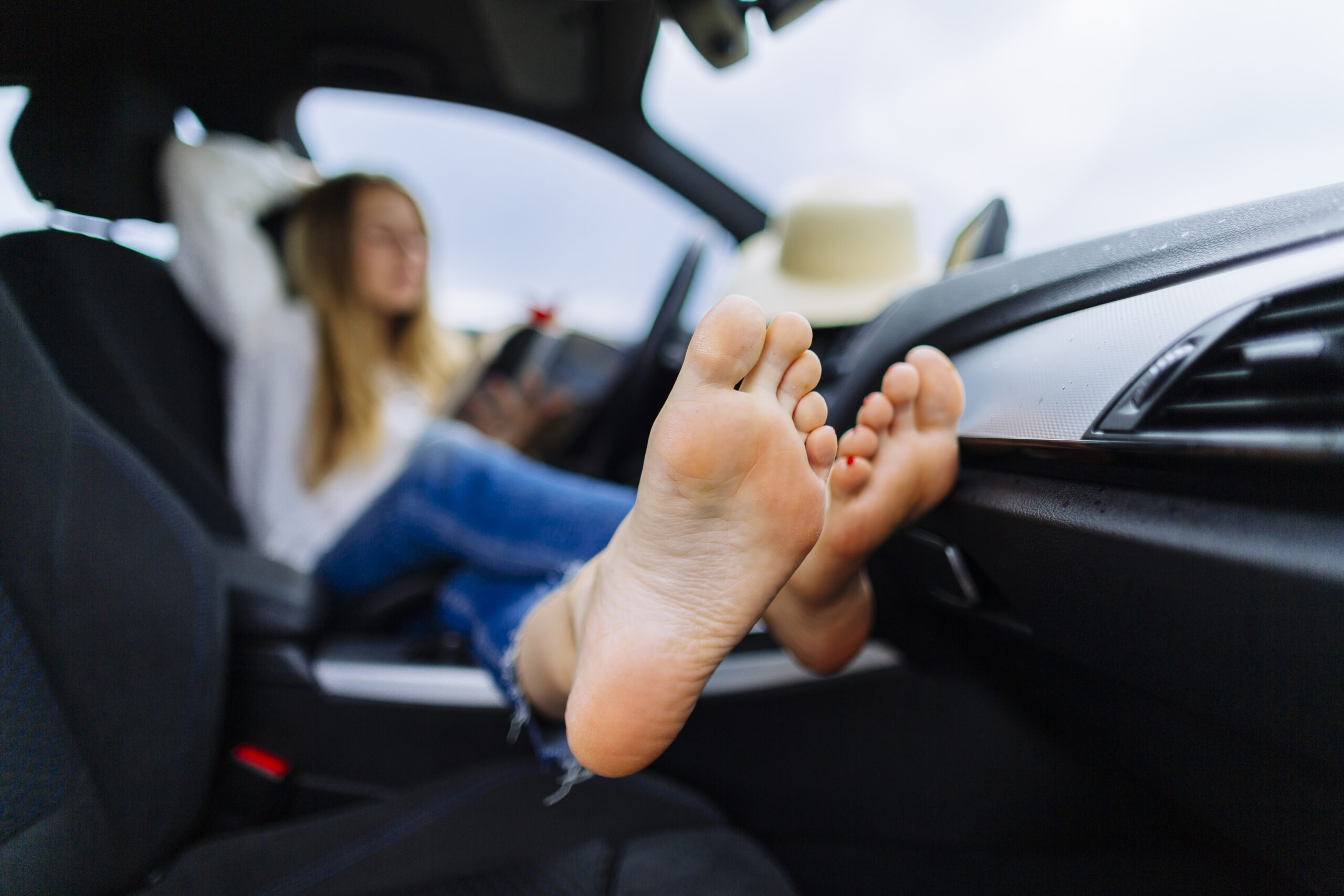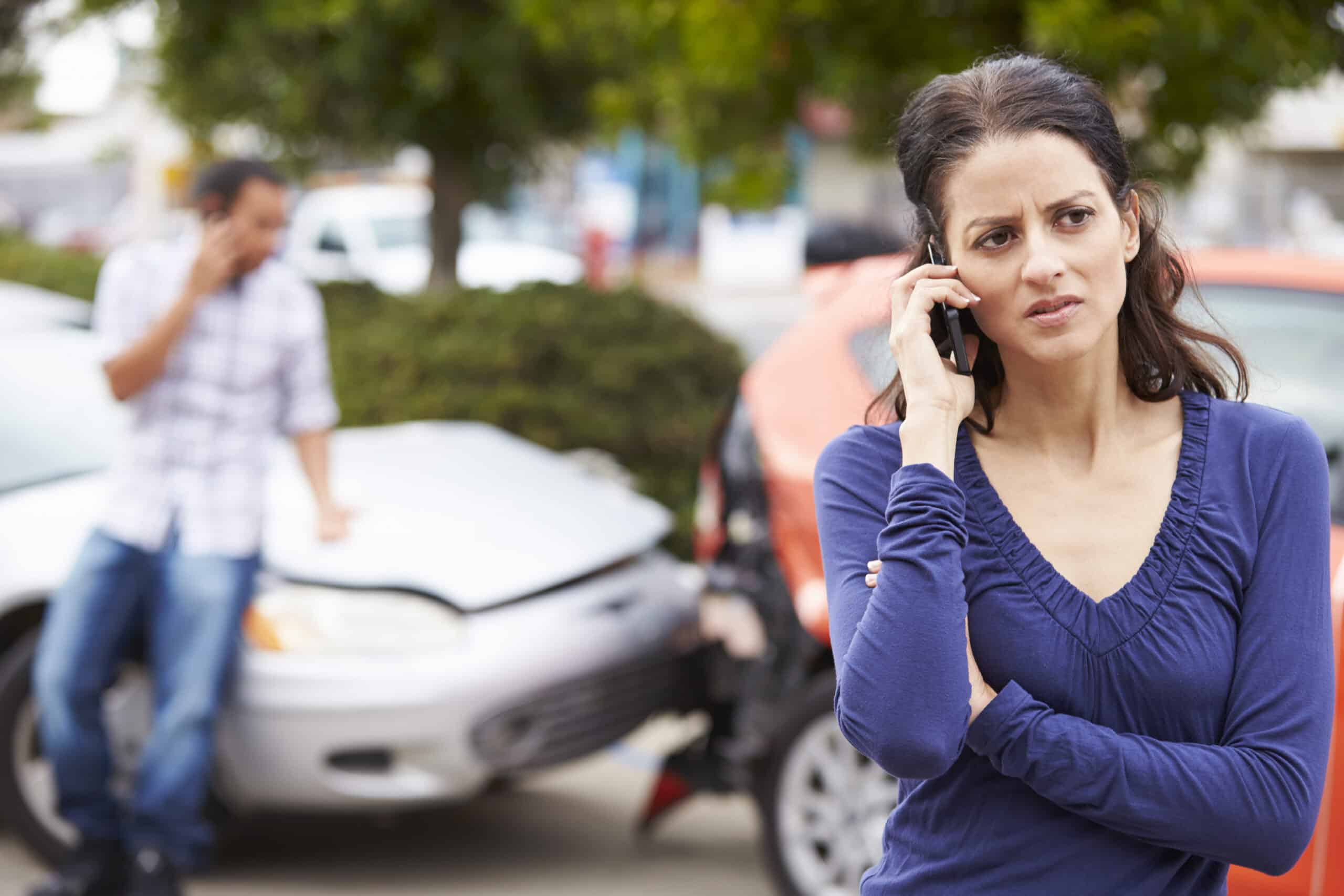Is it Unsafe to Operate a Vehicle While Barefoot?
Many people just assume that it’s illegal to drive a car barefoot. To understand the laws relevant to this act, however, one should first recognize the reasoning behind this broad assumption. Put simply, people suspect that operating a vehicle without shoes on is inherently dangerous. In fact, many state legislatures have actually condemned the practice.
In most cases, the belief is that your feet do not offer the same traction as a pair of shoes. One might expect that this would increase the likelihood of car accidents. Technically speaking, this is true. However, it’s also true that driving barefoot is likely much safer than wearing shoes that could get stuck under the pedal (e.g., wedge heels, long-laced shoes, flip-flops).
So, where does this leave us on the question of if it’s illegal to drive a car barefoot? The answer is actually quite simple.
States Do Not Outright Ban Driving Without Shoes
As of October 2023, there are no states that outright ban operating a vehicle without shoes. While representatives in some states have condemned the practice, they have not taken the step of making it illegal. However, no one should take this to mean that driving a car barefoot is legal where they live. While states have not taken major steps to outlaw the practice, some local governments in certain states have.
You may also find arguments that driving without shoes should fall under existing reckless driving laws. However, prosecutors would be hard-pressed to prove such actions are reckless unless they actually lead to an accident. This is where the law can get complicated in some instances. Because while driving barefoot isn’t illegal in most places, it can be cited as a contributing factor in motor vehicle accidents.
Facing Liability Without Breaking the Law
It may be surprising to find out that a person can face legal consequences for engaging in acts that aren’t illegal. The simple fact is that it all comes down to negligence and liability. While a certain behavior may not be against the law, this doesn’t mean that it’s safe. Additionally, many legal actions can play a factor in vehicular collisions. If this is possible, police and the courts will need to consider whether such acts contributed to the accident.
Let’s take an example where someone rear-ends another vehicle because their bare foot slipped off the brake pedal. In most cases, the rear-end collision is the most important factor. However, police will often include information in their report that explains what led to the accident. Rather than saying “Driver A caused the accident because they hit Driver B,” the report is more likely to say “Driver A lost control of the vehicle due to driving without shoes and hit Driver B.”
While police officers may be more elegant in their phrasing, the fact remains that they are detail-oriented. This means they’ll include as much information as possible in their report. So while driving barefoot isn’t illegal in most places, it can certainly be a legally operative fact when it comes to civil liability and even criminal charges.
What if a Barefoot Driver Injures You?
If your interest in the legality of barefoot driving relates to an accident you experienced, it’s important to understand that you have rights. One such right is the ability to go about your day without experiencing harm due to the reckless actions of others. If you’ve been involved in a vehicular collision and believe barefoot driving was a contributing factor, you might be entitled to substantial compensation.
This is because liability laws do not solely focus on criminal acts. For instance, envision a scenario where someone suffers catastrophic injuries after slipping on a wet floor at a grocery store. Clearly, it’s not against the law for store employees to procrastinate after a spill occurs. However, this action can amount to negligence — and proving negligence can result in financial damages on the part of the liable party.
The same is true when it comes to driving a car barefoot. While it may not technically be against the law in most areas, it can contribute to accidents. If you or a loved one were involved in such an accident, it might be possible to recover damages from the other driver. So the question isn’t whether it’s illegal to drive barefoot — the real question is whether doing so amounts to civil liability.
At Tehrani Law, LLC, we can review your case and let you know your options. Contact us at (301) 939-0133 for a free consultation.

 301-973-6510
301-973-6510 Email Us Now
Email Us Now




